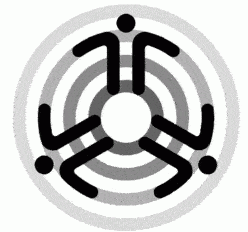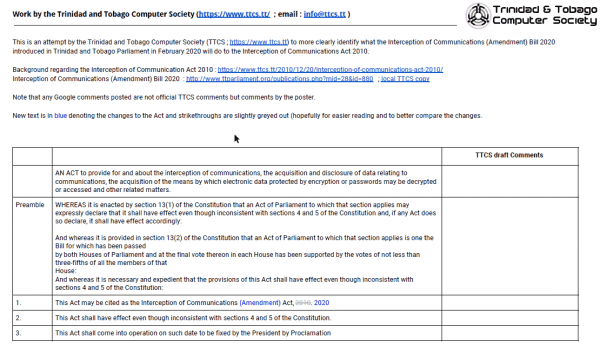The Interception of Communications (Amendment) Bill 2020 was introduced in the Trinidad and Tobago Parliament on February 4 2020 in the Senate by the Attorney General Honourable Faris Al-Rawi.
This Bill seeks to amend the Interception of Communications Act which was passed in 2010. The main objectives of the Bill are to:
allow for the interception and recording of communications from prisons and vehicles used to transport prisoners;
authorise officers to apply for a warrant to obtain stored communication and stored data from a telecommunications service provider;
permit officers to disclose the stored communication and the stored data;
establish the procedure for the disclosure of sensitive information; and
allow for intercepted information to be admissible as evidence in any proceedings.
From the Bill Essentials of the Interception of Communications (Amendment) Bill, 2020
Because The Interception of Communications (Amendment) Bill, 2020 is modifying the Interception of Communications Act 2010, the Bill reads about changing/removing words in this particular section of the Act, it is very hard to understand what the final Interception of Communication Act will become if the Bill is passed.
The Trinidad and Tobago Computer Society has therefore attempted to more clearly identify what the Interception of Communications (Amendment) Bill 2020 introduced in Trinidad and Tobago Parliament in February 2020 will do to the Interception of Communications Act 2010 by creating a Google doc showing the proposed specific changes to the 2010 Interception of Communications Act and what the proposed final Act will look like. The Google doc has comments enabled so that a decision can be taken whether we should attempt to submit a formal comment.


